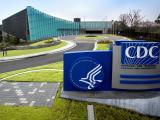Nov 15, 2010
US delegation highlights biosecurity lapses in east Africa
A US senator wrapped up an East Africa visit last week that highlighted biosecurity gaps in medical laboratories in a region known to house Al Qaida–linked insurgents. Sen. Dick Lugar, R-Ind., led a delegation from the US Department of Defense to evaluate major biomedical facilities in Uganda, Burundi, and Kenya and pledged US support. Lugar said that all three countries have biosecurity weaknesses, according to a Voice of America (VOA) story. "Therefore, we want to work together as partners to attempt to provide a very different situation," he said. He cited poor pathogen-storage practices, inadequate waste disposal, houses close to the facilities, and inadequate barriers surrounding labs, according to the VOA report and articles from Agence France-Presse (AFP) and the Associated Press (AP). Kenya has a long and porous border with Somalia, where al-Qaida–linked Shebab insurgents control large regions, according to the AFP story. Shebab has repeatedly threatened to attack Nairobi for supporting Somalia's transitional government.
Nov 12 VOA story
Nov 12 AFP article
Four more illnesses linked to contaminated Gouda
Four more people have been sickened in an Escherichia coli O157:H7 outbreak linked to tainted Bravo Farms Gouda cheese, raising the total to 37, the US Centers for Disease Control and Prevention (CDC) said in a Nov 12 update. The number of hospitalizations remained the same at 15, and the number of patients with hemolytic uremic syndrome, a potentially fatal kidney complication, also stayed the same at 1. The latest illness onset was Oct 27. The CDC has said the outbreak involves a strain of E coli O157:H7 that it has never before detected on PulseNet, its database of pathogen subtypes. In an earlier update the CDC said investigators had found E coli matching the outbreak strain in opened packages from two patients' homes, with a sample from an unopened package from a Costco store testing positive for the pathogen in preliminary studies. Investigators testing samples of other cheese during the investigation found a different E coli O157:H7 strain in an unopened package of Mauri Gorgonzola, which prompted a recall of one lot of that cheese. The Gorgonzola subject to the Nov 11 recall was sold at Colorado Costco stores and was packaged and distributed by DPI Specialty Foods, based in Tualatin, Ore. No illnesses have been reported. The CDC said in its latest update that the E coli strain isolated from the Gorgonzola is rare and has not been observed in PulseNet for the past several years.
Nov 12 CDC outbreak update
Europe sees need for better pandemic communication, vaccine data
Although European countries had different strategies for addressing pandemic 2009 H1N1 influenza, they faced similar problems and have learned universal lessons, such as the need for sound data on vaccine safety and efficacy to counteract misconceptions. The retrospective report found that similar age-groups were most affected across Europe: children younger than 14, followed by young adults. It also found low levels of vaccine uptake, with the exception of the Netherlands, which saw uptake of 76% in risk groups and 74% in children. The low uptake was in part attributed to anti-vaccine sentiment, including suspicion of new adjuvants. The report recommends (1) improving communication on vaccine issues; (2) standardizing vaccine priority groups; (3) obtaining sound data on vaccine efficacy and safety in pregnant women and in children, as well as on the long-term effects of adjuvants; (4) determining whether single-dose vials would work best; and (5) coordinating vaccine licensing policies with declared pandemic phases.
Nov 12 Vaccine study
Funding cut threatens Australia's disease response
The end of federal funding for an applied epidemiology training program at Australian National University threatens to hobble the country's response to infectious disease outbreaks, such as SARS (severe acute respiratory syndrome) and the 2009 H1N1 pandemic, infectious-disease experts wrote today in a Medical Journal of Australia (MJA) editorial. They said the end of funding for the school's Master of Applied Epidemiology (MAE) program, which has functioned as a national disease response team over the past several years, was recently folded into another federally funded public health program that is scheduled to end soon after existing 20 years. The group said the funding problem could be an administrative oversight, but they warned that loss of the program would leave Australia vulnerable. "Infections respect neither state nor national boundaries, and under Australia’s political structure their control can only be achieved through a consistent, coordinated effort by the federal and jurisdictional governments," they wrote, noting that the program is similar to the Epidemic Intelligence Service at the US CDC. "The ongoing human resource represented by the MAE trainees is a highly cost-effective insurance policy that we cannot risk losing in the challenging times ahead," they stated.
Nov 15 MJA editorial
Risk of polio spread high in Central Asia, Russian region
The risk of continued polio spread remains high in Central Asia and parts of Russia, according to a Nov 13 World Health Organization (WHO) alert. The WHO reported that genetic sequencing of the poliovirus from a child paralyzed in Kazakhstan Aug 12 confirms that the virus that caused an outbreak in Tajikistan and subsequently spread to Russia, Turkmenistan, and possibly Uzbekistan is still circulating. In addition, the agency confirmed a polio case with an onset date of Sep 25 in a child in Russia's North Caucasus Region. This was Russia's 14th polio case and North Caucasus's 6th. Tajikistan, which has recorded 458 recent cases of wild poliovirus infection, has not seen a case since Jul 4, following five mass immunization campaigns. The alert also said that, while Uzbekistan has not confirmed a polio case during the current outbreak, it is not possible to rule out ongoing, undetected transmission there, because samples from cases of acute flaccid paralysis are not currently being tested in a WHO-accredited laboratory. The report advises that "travelers to and from polio-affected countries should be fully protected by vaccination."
Nov 13 WHO alert
CDC proclaims 'Get Smart About Antibiotics Week'
Calling antibiotic resistance one of the world's most pressing public health problems, the US CDC and other agencies and groups have designated today through Nov 21 as "Get Smart About Antibiotics Week." The aim is to stress the need to protect the effectiveness of antibiotics by avoiding their inappropriate use. The third annual observance will highlight the efforts of the CDC, state and local health departments, and nonprofit and for-profit groups to educate the public about antibiotic resistance. "Antibiotics are a shared resource—and, for some infections, are becoming a scarce resource," said Dr. Laura Hicks, director of the CDC's "Get Smart: Know When Antibiotics Work" program, in a CDC press release. As part of the observance, the CDC is unveiling its "Get Smart for Healthcare" program, which will focus on improving antibiotic use in hospitals and nursing homes. In a related release, the Food and Drug Administration (FDA) urged consumers to take antibiotics only as prescribed and to refrain from saving leftover antibiotics or taking those prescribed for others.
Nov 15 CDC press release
Nov 15 FDA release
CDC "Get Smart for Healthcare" site





















